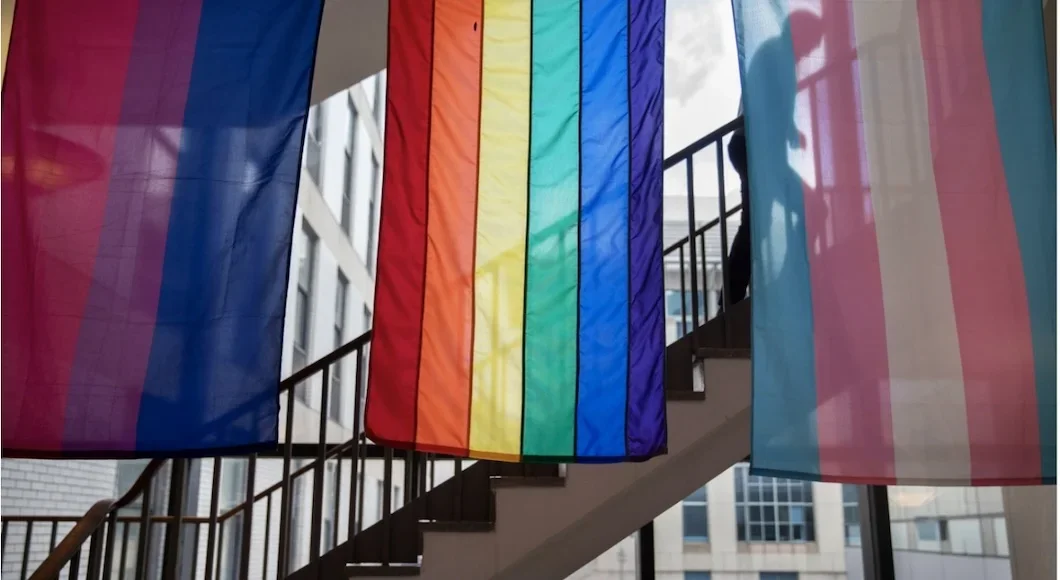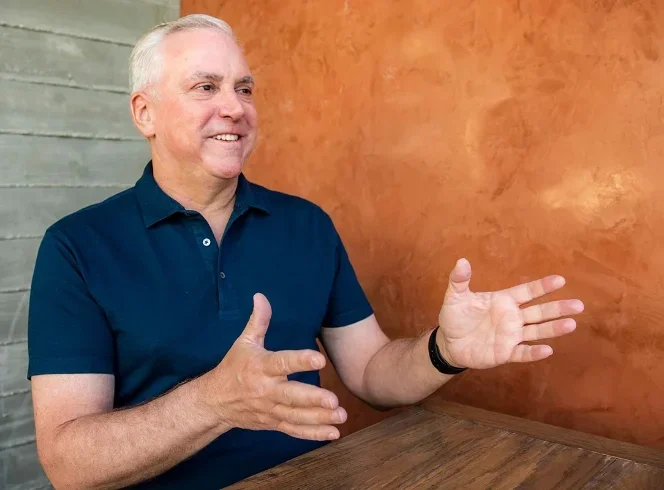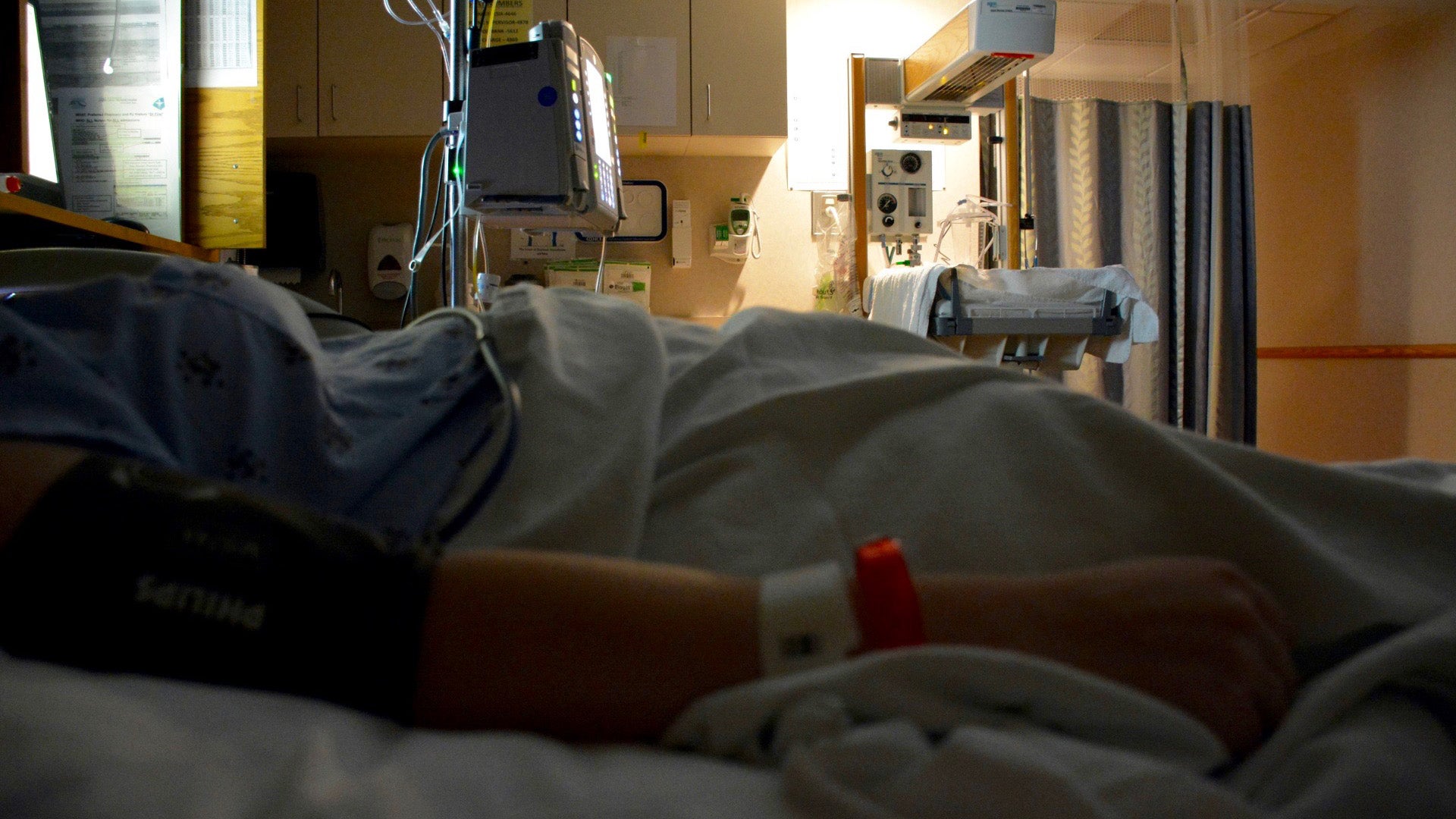Building a Strong and Healthy LGBTQ Community

A gift from Mike Dillon MPH ’23 is helping to advance work on LGBTQ health equity at Harvard T.H. Chan School of Public Health
For Mike Dillon MPH ’23, there has never been a more crucial moment to address the public health crisis facing LGBTQ communities.
LGBTQ individuals encounter significant challenges in accessing equitable and inclusive health care. Faced with discrimination, stigma, limited access to care—including gender-affirming care and reproductive care—and high rates of violence and disinformation directed at them and their health care providers, LGBTQ individuals experience alarming health disparities. This includes higher incidences of mental health conditions, substance use disorders, homelessness, sexually transmitted infections, and HIV/AIDS. They are less likely to have health insurance and often delay care, and many experience a lack of cultural competence from providers.
Galvanized by the urgent need for improved health care delivery and outcomes for LGBTQ communities, Dillon has made a gift to support efforts to advance LGBTQ health equity at Harvard T.H. Chan School of Public Health. The funding will help equip emerging public health care practitioners with essential knowledge and resources.
The gift aims to establish scholarships to attract talented students interested in LGBTQ health equity and create research grants that will support the work of graduate students and postdoctoral fellows. In addition, the gift will support University-wide service fellowships so that emerging leaders from across Harvard’s Schools can apply to an internship or practicum in the field.
Dillon hopes to see more interdisciplinary collaboration at Harvard around these issues and for researchers to coalesce around the intersectionality of marginalized communities.
“Public health is how we change history,” he says. “You only have a strong community if you have a healthy community.”
Making an Impact at Harvard and Beyond
After a successful 30-year career in various leadership roles at PricewaterhouseCoopers, Dillon sought a new way of making a difference outside of the corporate world.
He enrolled in the Harvard Advanced Leadership Initiative (ALI), a one-year, University-wide educational program for experienced leaders to address some of society’s most intractable challenges through interdisciplinary learning, leadership development training, and peer collaboration.
“ALI teaches you to think about your pathway to making social change and how you can make maximum impact,” says Dillon. “It gave me the freedom to think outside the box about what my legacy could be and how I could work toward change.”
After completing his fellowship, he was inspired to pursue a master’s degree in health policy at Harvard Chan School. “I kept coming back to LGBTQ health equity,” he says. “I knew it was important for me to learn the language of public health.”
Dillon wanted to do more to support the burgeoning research and scholarship in this field, which led him to make a gift to Harvard.
Brittany Charlton SM ’11, ScD ’14, associate professor of epidemiology at Harvard Chan School, is thrilled that students will now have the opportunity to address how discrimination impacts LGBTQ people.
“Mike Dillon’s gift is transformative in helping us make a meaningful and lasting impact for LGBTQ health equity,” says Charlton, who is also associate professor of population medicine at Harvard Medical School, co-director of the Harvard SOGIE (Sexual Orientation and Gender Identity and Expression) Health Equity Research Collaborative, and founder of the Harvard Sexual and Gender Minority Health Mentoring Program.
“LGBTQ people have become the target of an utterly unprecedented wave of policies across the U.S.—including those that limit access to health care and criminalize teachers for discussing the existence of LGBTQ people,” she says. “One in ten people in the U.S. identify as LGBTQ, and this population will grow as that number is twice as high among young people. It’s essential that we educate our learners so that they create the necessary evidence base through research and share this work to inform policy.”
Remembering the Past to Create a Brighter Future
A longtime leader, volunteer, and board member with LGBTQ health equity organizations, including the Trevor Project and the San Francisco AIDS Foundation Project, Dillon has witnessed firsthand how public health research benefits LGBTQ youth. He also remembers the fear of growing up during the HIV/AIDS epidemic and the crucial activism and public health messaging that opened many doors for LGBTQ rights.
“We are now at risk of losing rights that were hard won by many individuals and organizations years ago,” he says. “We thought the battle was over, but we’re still fighting.”
Charlton, reflecting on her 20 years of public health work in LGBTQ communities, has seen the field transform from a primary focus on HIV/AIDS to one that encompasses the diversity of LGBTQ communities impacted by a range of health inequities.
“It is profoundly meaningful to me as a queer woman to help build a diverse, inclusive, and equitable home for LGBTQ health work,” she says. “We must prepare the next generation of leaders—not only to document that inequities exist, but also to design interventions and advocate for policy changes that tangibly improve the lives of LGBTQ people.”
With more opportunities at Harvard for students to access fellowships, internships, and practicums, as well as engage in research, Dillon hopes that the University can attract practitioners early in their careers. He sees vast possibilities for students, who could go on after graduation to pursue meaningful work across sectors ranging from public health to legal advocacy to app development.
“We have incredible students who are part of this community,” he says. “This is the right place to do this work, and the time is now.”
A Study in Health Disparities
A 2024 study from Harvard Chan School and collaborating institutions found that women who identify as bisexual or lesbian experience higher rates of premature death compared to heterosexual women.
Led by Charlton and postdoctoral research fellow Sarah McKetta AB ’09, SM ’12, the study underscores the critical need to address sexual orientation–related health inequities. As the study notes, bisexual and lesbian women experience stigma and discrimination that often result in chronic stress and unhealthy coping mechanisms, which can lead to premature mortality.
In addition to this new research, Charlton is also the founding director of the recently launched LGBTQ Health Center of Excellence, a partnership between Harvard T.H. Chan School of Public Health and the Harvard Pilgrim Health Care Institute.
Under Charlton’s leadership, the center aims to mitigate such adverse outcomes and advance health equity by focusing on several areas:
- Training to prepare the next generation of LGBTQ health leaders
- Research to expand the evidence base of LGBTQ health
- Dissemination to inform policymakers, health care providers, and the larger public about how to improve LGBTQ health most effectively



